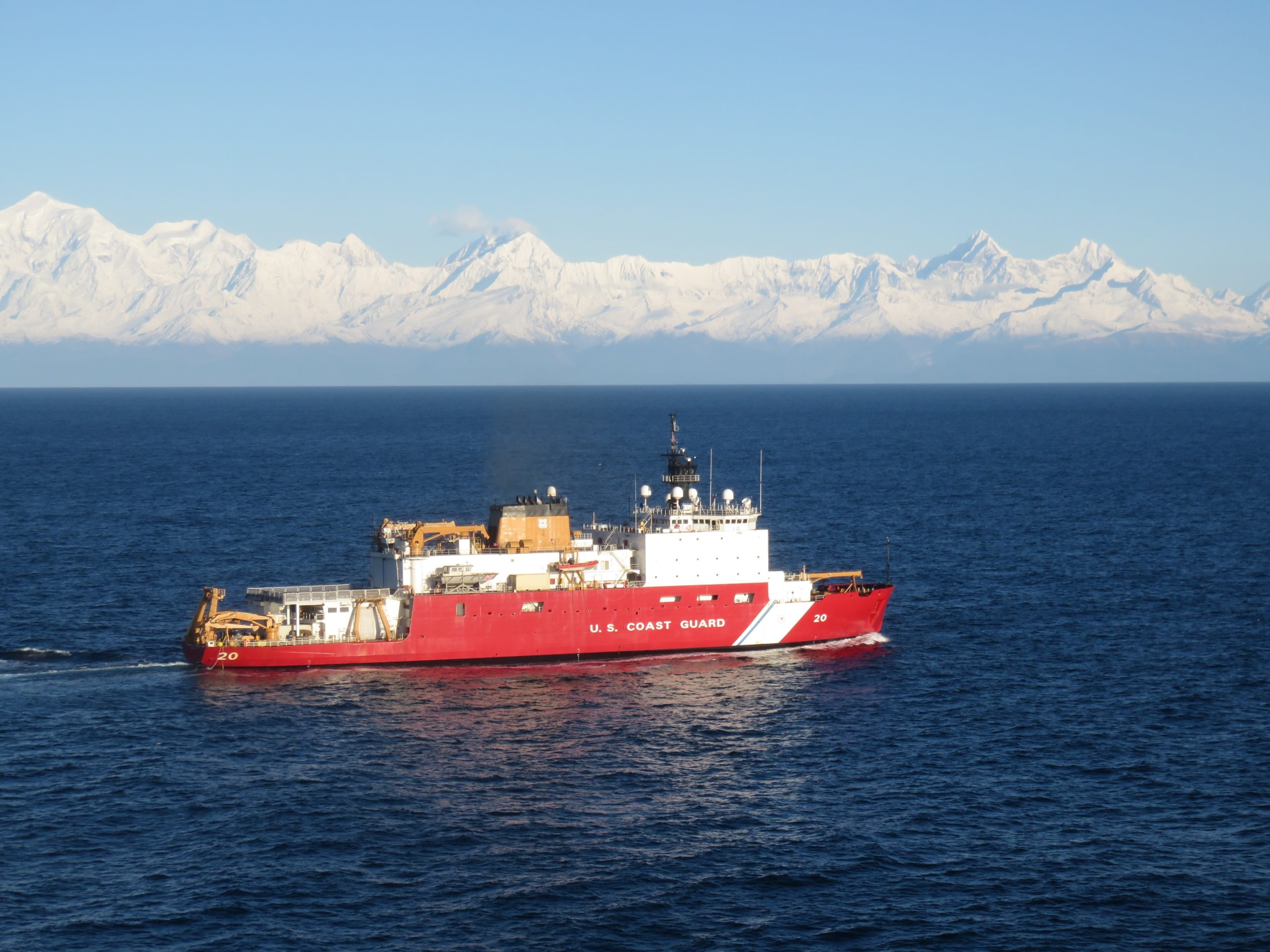Despite Ukraine war, US and Russia continue emergency cooperation in the Bering Strait
An agreement to cooperate on marine safety, including search and rescue, remains in place, but joint exercises are halted.

Even as western nations break off relations with Russia and freeze it out of international forums in the Arctic and elsewhere in response to its invasion of Ukraine, there is at least one area of continued U.S.-Russian cooperation: marine safety on either side of the Bering Strait.
The U.S. Coast Guard in Alaska and its Russian counterpart, the Russian Border Guard, maintain their agreements and programs for cooperation and joint responses to life and safety threats, government officials said at an Arctic conference in Anchorage last week.
“We keep an open line of communication for handling emergencies. That’s important to both Russia and the U.S. because something that happens in the Bering Sea throughout the Arctic impacts both our nations,” Rear Admiral Michael McAllister, commander of the Coast Guard’s Pacific Area, said in a brief interview Friday at the Arctic Encounter Symposium.
“It might be search and rescue, it might be oil spill response, it might be critical law enforcement or fisheries activity. So we keep a line of communication between our headquarters in Juneau and their counterparts in Russia open to coordinate those types of events,” he said.
McAllister served previously as commander of the Coast Guard’s Alaska district, and in that role, he gained experience working cooperatively with Russian counterparts on various aspects of mutually beneficial marine safety, including the designation of Bering Strait-area shipping lanes.
The current head of the Coast Guard’s Alaska district, in a conference presentation on Thursday that was focused on fisheries, referred to the “very high-functioning cooperative agreement” that allows for cooperation in emergency cases.
“We still have the ability to work with the Russian Border Guard for any emergent issue,” Rear Admiral Nathan Moore, commander of the Coast Guard’s District 17, told the audience.
“The State Department has specially called out the Coast Guard, and District 17 actually specifically, as being allowed to work with the Russians for any sort of spill response, any mass rescue, on either side of the border up there,” Moore said. “I don’t anticipate that to change at all.”
What has changed is the prospect of continuing the once-routine physical gatherings of Coast Guard and Border Guard officials from neighboring parts of Alaska and Russia, such as the collegial meeting held in Anchorage seven months ago to update a plan for joint oil-spill prevention and response in the Bering and Chukchi Seas.
Also unlikely in the near future would be any repeat occurrence of the joint patrol conducted more than a year ago along the Bering Sea Maritime Border Line by the Coast Guard icebreaking cutter Polar Star and aircraft operated by the Russian Border Guard.

When it comes to exercises with the Coast Guard’s Russian counterparts, Moore said in a brief interview, “We’re on a pause.”
Yet unknown is the fate of an in-person, on-the-water oil-spill exercise that has been planned for 2023 as a follow-up to the tabletop exercise conducted during the Anchorage meeting held last fall.
“It is in the long-term schedule, but of course, that’s a year from now,” Moore said of that 2023 event.
Cooperation on emergency response in waters lying between Alaska and Russia dates back to the Soviet era.
The endurance of marine response arrangements for the Bering and Arctic, despite the Ukraine crisis, was reassuring to Alaska Sen. Lisa Murkowski.
“I do think that that speaks to some of what has been put in place historically, where we don’t have a lot of resources in the Arctic. We need to rely on one another,” Murkowski said at a news conference Friday. “When it comes to life safety, this is one where I think there is room or at least a little bit of dialog.”